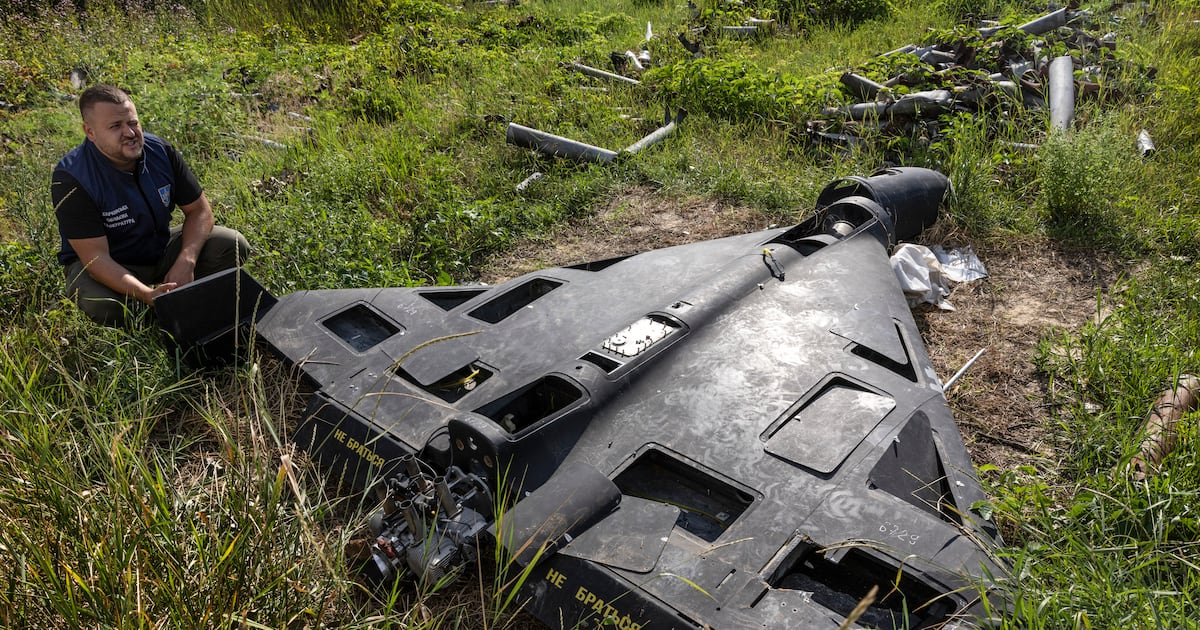World
Romania Condemns Russian Drone Incursion as Black Sea Tensions Rise

Romania has issued a strong condemnation of a Russian drone that entered its airspace during a military operation targeting Ukraine. This incident has been described by Romanian officials as a “new challenge” to security in the Black Sea region. The incursion follows similar reports from Poland, which has also denounced the presence of Russian drones in its airspace, calling on Moscow to refrain from further provocations.
According to Romania’s defense ministry, the drone entered national airspace on Saturday, prompting the country to scramble two F-16 fighter jets. These jets detected the drone, identified as a Geran model, which managed to orbit for approximately 50 minutes. The drone traveled from the northeast of the village of Chilia Veche to the southwest of Izmail before exiting Romanian airspace near the town of Pardina, heading back towards Ukraine.
Romania’s defense ministry emphasized that the drone did not fly over populated areas and did not pose an immediate threat to civilians. The situation was monitored with the assistance of German allies, who deployed two Eurofighter Typhoon aircraft for support.
In a statement, the defense ministry condemned the actions of the Russian Federation, asserting that they demonstrate a disregard for international law and represent a significant risk to regional stability. European Union foreign policy chief Kaja Kallas echoed these sentiments, calling the incident “unacceptable” and criticizing Moscow for what she described as a “reckless escalation” of military activities in the region.
Romania’s Foreign Minister Oana Toiu announced plans to address Russia’s actions at the upcoming United Nations General Assembly. She aims to advocate for strict adherence to international sanctions against Russia. Meanwhile, Poland’s Foreign Minister Radosław Sikorski remarked that the recent drone incidents are part of a strategy by the Kremlin to gauge NATO’s responses while avoiding a full-scale military confrontation. He noted that the drones that entered Polish airspace were capable of carrying ammunition but were not armed with explosives, suggesting a calculated approach from Russia.
These developments come at a time when NATO member states are increasingly concerned about security threats posed by Russian military activity, particularly as tensions remain high due to the ongoing conflict in Ukraine. The drone incursions highlight the potential for escalation in the region, raising alarms among NATO allies regarding their airspace security.
In the context of these tensions, former U.S. President Donald Trump indicated his support for implementing significant sanctions on Russian oil, contingent on a unified response from NATO countries. His comments reflect a growing sentiment among some Western leaders for a coordinated approach to sanctions against Russia, particularly as European nations continue to reassess their energy dependencies.
As Romania and Poland navigate these challenges, the international community watches closely, particularly as the situation in the Black Sea continues to evolve. The implications of these drone incursions extend beyond immediate security concerns, raising questions about the broader geopolitical landscape and the future of NATO’s collective defense strategies.
-

 Top Stories3 days ago
Top Stories3 days agoTributes Surge for 9-Year-Old Leon Briody After Cancer Battle
-

 Entertainment2 months ago
Entertainment2 months agoAimee Osbourne Joins Family for Emotional Tribute to Ozzy
-

 Politics2 months ago
Politics2 months agoDanny Healy-Rae Considers Complaint After Altercation with Garda
-

 Sports2 days ago
Sports2 days agoConor Murray Reflects on His Career in New Autobiography
-

 Top Stories2 days ago
Top Stories2 days agoNewcastle West Woman Patricia Foley Found Safe After Urgent Search
-

 Top Stories1 month ago
Top Stories1 month agoIreland Enjoys Summer Heat as Hurricane Erin Approaches Atlantic
-

 World2 months ago
World2 months agoHawaii Commemorates 80 Years Since Hiroshima Bombing with Ceremony
-

 Top Stories2 months ago
Top Stories2 months agoFianna Fáil TDs Urgently Consider Maire Geoghegan-Quinn for Presidency
-

 World2 months ago
World2 months agoGaza Aid Distribution Tragedy: 20 Killed Amid Ongoing Violence
-

 World2 months ago
World2 months agoCouple Convicted of Murdering Two-Year-Old Grandson in Wales
-

 Top Stories2 months ago
Top Stories2 months agoClashes Erupt Between Far-Right Groups and Migrants in Spain
-

 World2 months ago
World2 months agoAristocrat Constance Marten and Partner Convicted of Infant Murder









